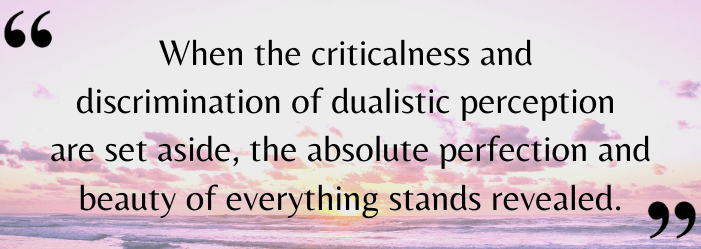Episode 5: What I learned from "The Eye of the I"
Podcast Episode #5: What I have learned from reading Dr. David R. Hawkins' book The Eye of the I: From Which Nothing is Hidden

Today I'll be talking about Dr. David R. Hawkins' book "The Eye of the I: From Which Nothing is Hidden". This book delves deeply into awareness, what it means to exist, the meaninglessness of time, the role of the mind, and the nature of God.
As I was reading this book, it took me a while to realize that Dr. Hawkins was describing his own life in many of the chapters. He had let go of the ego which most people identify as the core of a person, and he had found the essence of his own Self-with-a-capital-S (the Eye of the I). Instead of using the pronouns "I" or "me" to refer to himself, he wrote the passages referring to his own life with the passive voice.
You may remember from my episode “Getting to Know Baruch Spinoza” that Spinoza referred to the energy that inhabits everything in the universe and connects all things as the Substance. Dr. Hawkins calls this the Presence. According to Hawkins, when you experience spiritual awakening, you become accustomed to the Silence of the Presence, which acts to block out the distractions of the material world.
You may wonder how you could possibly live a fruitful life and block out life’s distractions at the same time. The trick, it seems, is to allow yourself to witness the world as a person normally would, but to remember the fact that the ego trying to interpret the input is not the real you.
In the chapter called "Circumventing the Ego", Dr. Hawkins suggests that you give up your habits of forming opinions and being judgmental, and that you see the world from more of a 3rd-person point of view. When you view the world without using the "I" of your ego as a vantage point, you are better able to discern the reality around you. Instead of seeing people and things as they "should" be, you will see them as they are, and know that they cannot be any other way. If they could be different then they would be different, but they are as they are and that is the reality of Now.
According to Dr. Hawkins, a single moment in the Now, as perhaps captured by a photograph or painting, is perfect in and of itself. But when we perceive a sequence of events as life unfolds, we tend to interpret the people involved or the events themselves as "good" or "bad". When we are able to move beyond interpreting the world as it affects our emotions and opinions, we move one step closer to realizing the reality of the perfection of the universe as it stems from the Presence. One key to this realization is recognizing that every "thing" can be defined merely by its "beingness". Beingness is the very definition of existence.
Dr. Hawkins also points out that by the time you internally process what you hear, see, taste, or feel, one-ten-thousandth of a second has passed, and your thought about what you sensed is already based on old data, not on the reality of Now. Not only that, but the inner programming of your ego—what you have been taught to believe and understand throughout your life—takes all information and runs it through the filters of your past experiences to form your next thought. Distortion of reality is immediate and automatic. When you are able to let go of your idea of self as defined by your ego, letting go of your expectations of yourself and of others, you are free to experience the world in an unbiased, clear-eyed way. You find yourself transformed from the little-m-me and small-s-self to the capital-M-Me and the capital-S-Self, and the beauty of the universe reveals itself to you.
In the chapter entitled "The Resolution of the Ego", Dr. Hawkins describes the idea of cause and effect as a fallacy that relies on our belief that a person can be identified as “good” or “bad” as a result of his roles, thoughts, and actions. For example, someone is "good" if he goes to church every Sunday; or he is "bad" because he gets into fights. These are all opinions that derive from thinking "this" causes "that", and seeing a person as a combination of a thinker of thoughts, a doer of actions, a feeler of feelings, etc. But if you see others (and yourself) in terms of "beingness" beyond the ego's thoughts and actions, you understand that every person just "is". Your ego may have the opinion that a person's actions or thoughts are "good" or "bad", but those labels do not serve to define the essential nature of that person. These are dualistic ideas that do not align with our journey toward nondual spiritual awakening.
This quote from Chapter 1 pretty much sums up this idea:
“When the criticalness and discrimination of dualistic perception are set aside, the absolute perfection and beauty of everything stands revealed.”
In the chapter called "The Nature of the Quest", Dr. Hawkins describes the process of spiritual evolution. He says that most of humanity scores below level 200 on his calibrated Scale of Consciousness, stuck at the levels of shame, guilt, apathy, grief, fear, desire, anger, and pride. But those who desire it will rise through the levels to ultimately find Peace at level 600, and some may ultimately break through to Enlightenment. Dr. Hawkins describes both the joys and the struggles one might encounter along the way.
He goes on to discuss the differences between religion and spirituality, and how the messages of the great teachers, such as Christ and The Buddha, often get distorted when relayed by those whose egos warp the meanings. When you add in some church doctrine created by those who crave power, the original spiritual teachings become very garbled, a far cry from the original universal messages of peace and love.
There is much more detail in the book, including chapters on the mind, advanced awareness, and the nature of God. There is also a whole section of discussions and lectures in a Q and A format, as well as several appendices.
It's not a quick read, but it is full of thoughtful guidance for those seeking spiritual enlightenment.
If you'd like to buy “The Eye of the I” and support this podcast at the same time, you can click the Amazon affiliate link in the transcription on my blog at SpiritualBNR.org. I’ll receive a small commission, and you’ll have my gratitude for supporting this podcast.
Amazon affiliate link for
The Eye of the I: From Which Nothing is Hidden:
https://amzn.to/2QtfnF8

